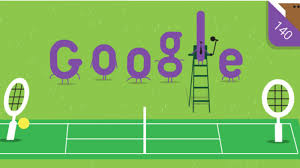 What is one of the first things you do when you figure out your son or daughter’s starting time for their tournament on the weekend? You type their opponents name into google and you get to see their tennis recruiting rating and results. You may also look up their UTR rating. Then you may speak to your child about these ratings and numbers. This is where the stress begins.
What is one of the first things you do when you figure out your son or daughter’s starting time for their tournament on the weekend? You type their opponents name into google and you get to see their tennis recruiting rating and results. You may also look up their UTR rating. Then you may speak to your child about these ratings and numbers. This is where the stress begins.
Do not forget that your son or daughter knows who they are playing already, what their opponent’s rating is and how they have done recently. Do you know what all this means? You guessed it! Nothing. Speaking or looking up what the rating is of the opponent is not going to help your child focus on the important details that it is going to take to perform well in a particular tennis match. We live in a time where we can find out anything with the touch of a couple of buttons on our smart phones. There are advantages and disadvantages to all of this information. There should be no discussion and there should be no thinking about what the potential consequences could be if you give up a certain amount of games or loses to this level of player. Not only is this negative thinking, your child’s brain will be thinking of how not to screw up this match, which will in turn make them very nervous and unable to perform at their best level. I am sure many parents and juniors reading this have done this exact type of preparation for tournament matches. In fact, I know many juniors and their parents that go through this type of preparation before every tournament and wonder why their child is so uptight when they are competing. This will just create additional stress on the child.
Regardless of all the technology around us, there is a certain way to prepare your child to perform at their best level in a tournament, win or lose. There should be objectives that are trying to be achieved each time your son or daughter gets ready to compete at a tournament. Every child is different, but below are some objectives that should be monitored at a tournament.
I do not care who they play, they need to understand how to follow a game plan. When they find out whom they play, they need to know the strengths and weaknesses of that particular player. They may need to call a friend who may know that player. Find out how the player plays. If they cannot find out any information on their opponent, the warmup during the match and the first two games should be used to figure out how they are going to play their opponent, and with the game plan in their head, how long could they execute this plan for? Many junior tennis players cannot stick to a solid game plan for extended periods. They have mental lapses of concentration during their matches. Top players have very short mental lapses and others have lapses that can last for games. It comes down to how disciplined your child is in not only their tennis, but also their lives. I have noticed that this current generation of children have short attention spans and I think it is due to their surroundings. Everything is done quickly without taking time to think it through. The next thing to accomplish during a match is to have a great attitude with a fighting spirit.
That is it in a nutshell; have a game plan and follow it, concentrate with your game plan, and have a great positive attitude. Win or lose, you know what is going to happen when your tournament is over? You are going to come back to practice and hopefully work on the things that did not go well in your tournament. It is that simple. Do not clog your brain with stats that do not mean much. Prepare your brain properly and you will have more fun and enjoy competition a lot more by keeping things simple and in perspective.